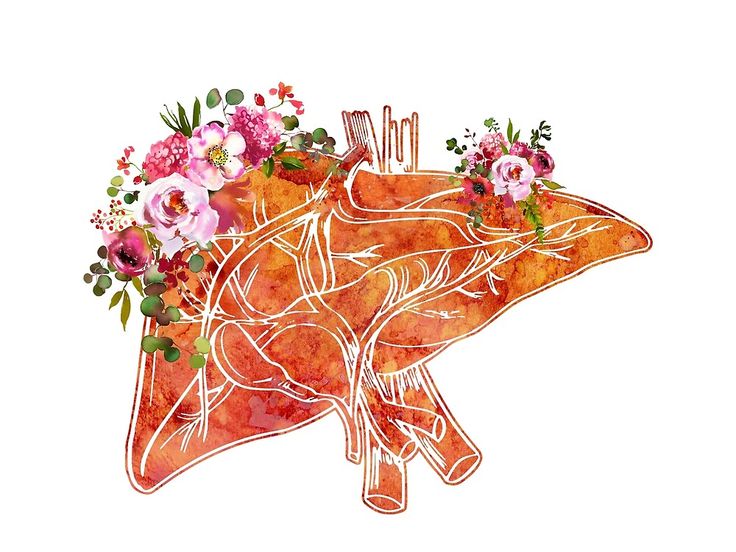The Silent Toll: How Alcohol Weakens the Liver Over Time
Let’s talk about something we often overlook – our liver. This incredible organ works tirelessly to keep us healthy, but sometimes, our relationship with alcohol can put it under strain.
Think of your liver as a loyal friend who’s always there, filtering out the bad stuff and keeping your body in balance.The relationship between alcohol addiction and liver damage is both significant and complex.
As one of the body’s most vital organs, the liver plays a crucial role in filtering toxins, including alcohol, from our bloodstream. When alcohol consumption becomes excessive or chronic, it can lead to progressive liver damage, potentially culminating in cirrhosis and liver failure.
How Alcohol Affects the Liver?
The liver is remarkable in its ability to process toxins and heal itself. However, prolonged exposure to alcohol can overwhelm these natural healing mechanisms. When you consume alcohol, your liver prioritizes breaking it down over its other functions. But just like any hardworking friend, your liver needs breaks and care to stay healthy.
The Three Stages of Alcohol-Related Liver Disease
1. Alcoholic Fatty Liver Disease
The earliest stage of alcohol-related liver damage is fatty liver disease. During this phase:
- Fat deposits accumulate in liver cells
- The liver becomes enlarged and less efficient
- Symptoms are typically mild or nonexistent
- The condition is usually reversible with abstinence
Most people with fatty liver disease can fully recover if they stop drinking alcohol before inflammation develops. This early stage serves as a warning sign that drinking habits need to change.
2. Alcoholic Hepatitis
As alcohol consumption continues, the liver becomes inflamed, leading to alcoholic hepatitis. This condition can be either acute or chronic and is characterized by:
- Inflammation and death of liver cells
- Symptoms such as jaundice (yellowing of skin and eyes)
- Abdominal pain and tenderness
- Nausea and loss of appetite
- Fever and fatigue
Alcoholic hepatitis ranges from mild to severe, with severe cases having a higher mortality rate. While mild cases may be reversible with abstinence, severe cases can quickly progress to liver failure.
3. Cirrhosis
The final and most serious stage of alcohol-related liver disease is cirrhosis. During this stage:
- Healthy liver tissue is replaced by scar tissue
- The liver’s structure and function are permanently altered
- Blood flow through the liver is restricted
- The liver’s ability to process nutrients, hormones, and drugs is impaired
- The risk of liver cancer increases significantly
Understanding the Risk Factors
Several factors influence how quickly alcohol-related liver damage develops:
- Quantity and Duration of Alcohol Use
The amount and length of time someone drinks alcohol directly impacts their risk of liver damage. Research indicates that:
- Women who consume more than one drink per day
- Men who consume more than two drinks per day
- Anyone who binge drinks regularly
- Are at increased risk for developing alcohol-related liver disease
- Genetic Factors
Genetic predisposition plays a significant role in how individuals process alcohol and their susceptibility to liver damage. Some people are genetically more vulnerable to developing alcohol-related liver disease, even with moderate consumption.
- Other Risk Factors
Additional factors that can accelerate liver damage include:
- Poor nutrition
- Obesity
- Viral hepatitis infections
- Other liver conditions
- Certain medications
- Gender (women are more susceptible)
Listening to Your Body’s Signals
Your body has ways of letting you know when your liver needs help. Here are some signs worth paying attention to:
Early Whispers
- Finding yourself tired more often
- Noticing changes in your weight without trying
- Food not appealing to you like it used to
- Occasional queasiness
Louder Calls for Attention
- Skin and eyes taking on a yellowish tint
- Stomach starting to swell
- Bruising more easily than before
- Having trouble thinking clearly
Treatment Options for Alcohol-Related Liver Disease
Immediate Steps:
- Stop drinking alcohol completely.
- Seek treatment for alcohol addiction.
- Improve nutrition with a balanced diet and supplements.
- Manage any health complications.
Medical Treatment:
- Medications to reduce liver inflammation.
- Treatments for high blood pressure in the liver (portal hypertension).
- Managing fluid buildup (ascites) and preventing bleeding.
- Treating infections and related health issues.
Lifestyle Changes:
- Eating a nutritious diet.
- Exercising when safe.
- Avoiding substances that harm the liver.
- Prioritizing rest and stress management.
Advanced Treatment:
For severe liver damage, a liver transplant may be considered if the patient:
- Remains sober.
- Has no other major health risks.
- Has strong social support.
- Meets medical criteria for transplantation.
Prevention and Recovery – 9 Key Prevention Strategies
- Follow Safe Drinking Guidelines
- Men: No more than 2 drinks per day.
- Women: No more than 1 drink per day.
- Sticking to these limits reduces the risk of liver damage.
- Take Regular Alcohol-Free Breaks
- Give your liver time to heal by having at least 2-3 alcohol-free days per week.
- Longer breaks (weeks or months) can reset drinking habits and improve health.
- Be Aware of Drink Sizes
- 12 oz beer (5% alcohol)
- 5 oz wine (12% alcohol)
- 1.5 oz spirits (40% alcohol)
- Knowing portion sizes helps control intake.
- Avoid Binge Drinking
- Drinking 4-5 drinks in two hours overwhelms the liver.
- Even occasional binge drinking can cause long-term liver damage.
- Eat a Balanced Diet
- Include fresh fruits, vegetables, whole grains, and lean proteins.
- Avoid processed foods and saturated fats to reduce liver strain.
- Exercise Regularly
- Aim for 150 minutes of moderate or 75 minutes of intense activity per week.
- Helps prevent fat buildup in the liver and supports overall health.
- Get Enough Sleep
- The liver repairs itself during sleep.
- Adults need 7-9 hours of quality sleep per night.
- Manage Stress
- Chronic stress affects liver health and can lead to unhealthy drinking.
- Practice meditation, yoga, or deep breathing to cope with stress.
- Schedule Regular Check-Ups
- Routine liver function tests can detect early damage.
- Discuss alcohol consumption with your doctor for preventive care.
Looking Ahead: Your Liver’s Future
The choices you make today shape your liver’s health tomorrow. Whether you’re just starting to think about your liver health or looking to make changes, remember that every positive step counts.
Simple Ways to Start Today
- Track your alcohol intake
- Plan alcohol-free days
- Stay active and eat well
- Get regular check-ups
- Listen to your body’s signals
Building Your Circle of Support: The Key to Lasting Recovery
Recovery isn’t a solo journey – it’s about building a network of support that catches you when you stumble and celebrates with you when you succeed. Let’s talk about creating your perfect support system.
Your Healthcare Team: Your Recovery Guides
Think of your healthcare team as your personal recovery guides. They’re experts who work together to:
- Track your progress through regular check-ups
- Adjust your treatment plan as needed
- Catch potential issues early
- Keep your recovery on the right path
Your Recovery Community: Finding Strength in Numbers
Recovery becomes easier when you’re surrounded by people who understand your journey. This might include:
- Support groups where stories and strategies are shared
- One-on-one counseling for personalized guidance
- Family therapy to strengthen your support at home
- New friends who share your commitment to health
Your Daily Wellness Team
Small daily choices add up to big changes. Your wellness support might include:
- A nutritionist who helps you fuel your body right
- A fitness coach who keeps you moving safely
- Stress management techniques that work for you
- Better sleep habits that help your body heal
The Path Forward: Making Recovery Last
The journey to better health isn’t always straight, but with the right support, it’s always possible. Your success depends on:
- Staying connected with your support network
- Being honest about challenges when they arise
- Celebrating small victories along the way
- Taking recovery one day at a time
Ready to Start Your Journey?
At Ganaa, we understand that asking for help takes courage. Our experienced team is here to support you with:
- Comprehensive medical care
- Evidence-based addiction treatment
- Mental health support
- Family therapy
- Holistic wellness programs
Start Your Mental Health Journey with Ganaa Today
Whether you’re seeking help for yourself or a loved one, Ganaa offers evidence-based, compassionate
mental health care that’s rooted in dignity and excellence.
Contact us at +91 8750075006 or visit www.ganaa.in to begin your journey toward mental wellness.












